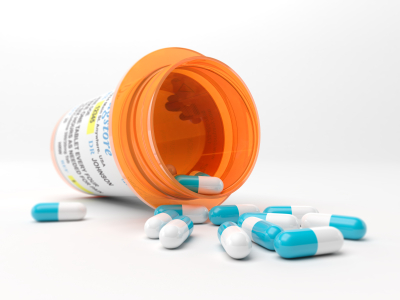
In what is likely the first major Medicare policy change of the Trump Administration, Medicare payment for 340B drugs administered in the hospital outpatient department will be cut from 106% of average sales price (ASP, or ASP+6%) to average sales price less 22% (ASP-22%). Those who have been following President Trump’s statements on health care policy beyond the Affordable Care Act are aware that drug prices are one of his favorite targets. However, it looks like this policy won’t actually result in any savings, as the agency is making it “budget neutral,” and it might end up being better for manufacturers overall.
The change was announced in the final Outpatient Prospective Payment System payment rule, which was released tonight and will go into effect January 1, 2018. Want to catch up on the proposed rule released in July? Check out our summary here.
340B Payment Policy Change: Lower Payments but No Savings?
As participation in the 340B drug discount program has proliferated in recent years, concern has grown over the discrepancy between Medicare payment rates and 340B discount pricing. In particular, MedPAC has raised concerns that the large difference between the two has led to a large subsidy between Medicare and 340B covered entities. CMS cited MedPAC and Government Accountability Office (GAO) analysis in the proposed rule, in which they proposed to reduce Medicare payment rates to hospital outpatient departments purchasing drugs through the 340B program to ASP-22%, from the current payment rate of ASP+6%. CMS notes that the change will be “budget neutral” meaning that hospitals could make up for lost revenue in other areas and, perhaps most importantly, the change won’t result in any program savings.
A couple of things to keep in mind: the rule states this applies to “drugs purchased through the 340B program,” meaning that hospitals could choose to pay “full price” for the drug and bill at ASP+6%. It will be interesting to see how hospital purchasing behavior will shift: it may result in utilization moving away from 340B, which should be good news for manufacturers.
Outpatient Knee Replacements Now an Option for Medicare Beneficiaries
After initially seeking stakeholder input in the CY 2017 OPPS proposed rule, CMS is now finalizing the proposal to remove the total knee arthroplasty (TKA) procedure, as described by CPT code 27447, from the inpatient only (IPO) list beginning in CY 2018. CMS does note that removing TKA from the list does not require the procedure to only be performed in an outpatient setting. This shift will open the ability for ambulatory surgical centers to skim patients away from more costly hospitals, especially inpatient hospital stays. Outpatient knee replacements are commonly covered by commercial health plans.
Lab Date of Service Exception Proposal Largely Finalized
In the proposed rule, CMS suggested modifications to the “14-Day Rule,” under which a test ordered at least 14 days post-discharge on a specimen collected during a hospital stay may be billed separately from the hospital stay. Due to the nature of new, advanced tests that must be performed by an external laboratory and often must be performed sooner than 14 days after specimen collection, a number of groups, including cancer patient advocates had supported an exception to this rule, allowing laboratories to bill CMS directly on the date the test was performed. CMS will finalize the proposal to exempt tests that meet the following criteria from the “14-Day Rule”:
- The test was performed following a hospital outpatient’s discharge from the hospital outpatient department;
- The specimen was collected from a hospital outpatient during an encounter;
- It was medically appropriate to have collected the sample from the hospital outpatient during the hospital outpatient encounter;
- The results of the test do not guide treatment provided during the hospital outpatient encounter; and
- The test was reasonable and medically necessary for the treatment of an illness.
If you are wondering how this could impact you or your business, please contact Jim Scott at jscott@appliedpolicy.com or 202-558-5272.


